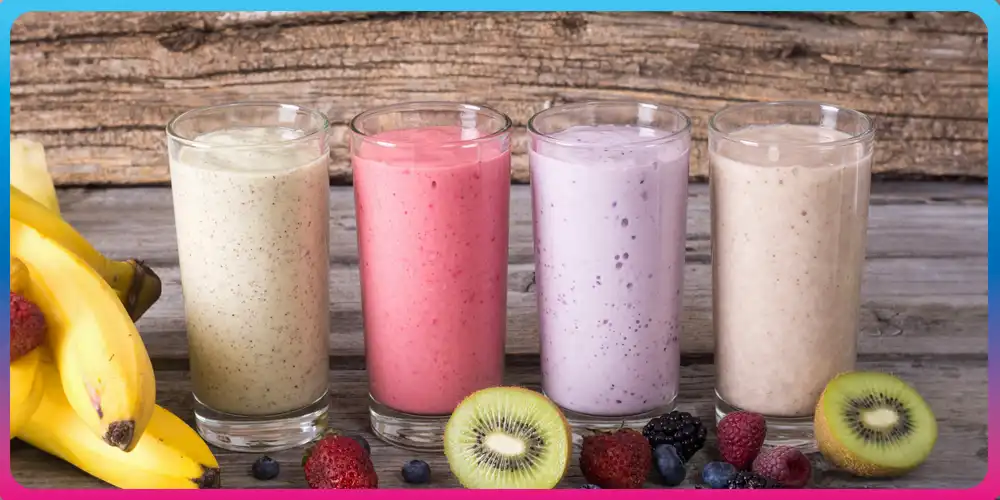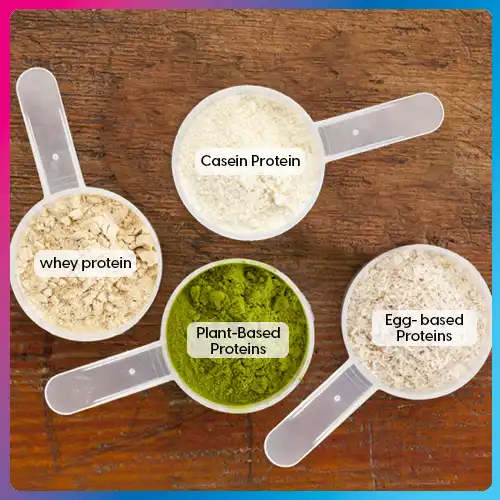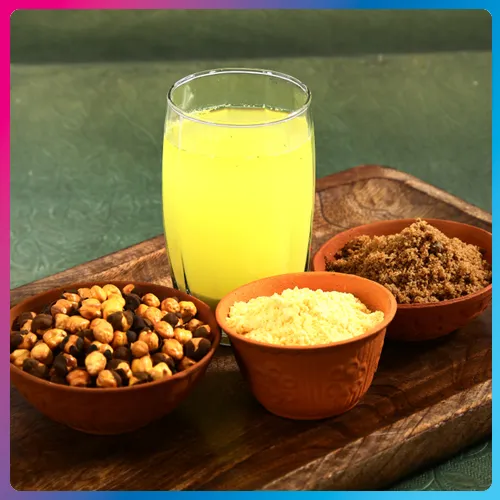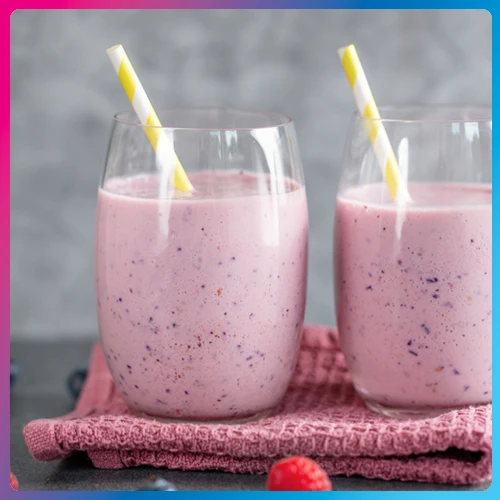Are Protein Shakes Safe for People with Diabetes? Expert Insights

In the journey towards a healthier lifestyle, dietary choices play a very important role. For individuals with diabetes, managing their nutritional intake becomes not just important, but crucial.
This brings us to the topic at hand: protein shakes. Are they a boon or a bane for those with diabetes?
Protein is really important if you have diabetes. It doesn’t affect your blood sugar as much as carbs do, hence keeping your blood sugar levels steady. Also, eating protein makes you feel full, which can help you manage your weight.
And here’s a secret: Not all protein shakes are made the same. Some might have too much sugar hiding in them. But don’t worry, our experts will show you how to pick the good ones. The ones that can be your buddies in the diabetes adventure.
Remember, your diabetes journey is your own. What works for one person might not work for another. That’s why it’s super important to get advice from our diabetes superhero squad – your doctors and dietitians.
So, buckle up! Get ready to be your own diabetes superhero with some expert insights. Let’s do this!
The Need for Protein Supplements
1. Why We Need Protein?
Our bodies need protein to build muscles, repair tissues, and stay healthy. For people with diabetes, this is super important because it helps control blood sugar and keeps muscles strong.
2. Why India Needs More Protein?
In India, our diets are usually loaded with carbs but lack protein. Our Traditional Indian diets have few protein options, hence making it difficult to meet the protein requirement.
So, we turn to protein supplements to fill that protein gap.
What Are Protein Supplements?
Let’s keep it simple.
They’re available in the form of protein powders, shakes or bars. This makes it easy to get more protein when our regular food doesn’t quite meet the requirements.
Expert Talk: Protein Shakes and Diabetes
We had a chat with the diabetes experts to get the lowdown. Here’s what they had to say about protein shakes and their impact on diabetes.
What to Look Out for in Protein Supplements?

1. Types of Protein
Protein supplements are not one-size-fits-all; they come in different types. Here are a few common ones:
a. Whey Protein
This comes from milk and is easy for your body to use. It has all the important amino acids.
b. Casein Protein
Also from milk, but it works slower. It’s good if you want protein that lasts longer in your body.
c. Plant-Based Proteins
These are made from plants like peas and soy. They’re great for vegetarians, but some may not have all the amino acids your body needs.
d. Egg- based Proteins
These come from eggs and are a source of high-quality protein.
The choice of protein type depends on individual preferences, dietary restrictions, and health goals. For people with diabetes, it’s essential to consider how different types may affect blood sugar levels.
Choose the one that suits you best.
2. Blood Sugar Impact
For people with diabetes, monitoring blood sugar levels is quite important. Some protein supplements have sugars or carbs that can make these levels go up quickly. So, it’s a good idea to choose ones with less or no sugar to help control your diabetes.
To know your chances of Diabetes reversal, take the Diabetes Reversal TestDiabetes Reversal
Calculator
3. Allergen Concerns
Be aware of any allergies or sensitivities you may have. Some protein supplements may contain common allergens like dairy, soy, or nuts. Always read the ingredient list carefully to ensure the product is safe for you.
Issues with Protein Supplements
Protein supplements are great, but there can be some issues.
1. Digestive Problems
Eating too much protein can upset your stomach as well as cause acidity and bloating. So, it’s a good idea to start with a small amount and increase the quantity gradually. It is important to drink plenty of water while on protein supplements.
2. Kidney Health
People with diabetes are at risk of kidney issues. So, if you have diabetes and want to take protein supplements, it’s a good idea to talk to your doctor or a diet expert first. They can help you make safe and healthy choices for your diet, which is important for managing diabetes.
How Much Protein to Take?
How much protein you need isn’t the same for everyone.
1. General Protein Intake
For healthy folks, about 0.8 grams of protein per kilogram of body weight is good. To know the exact amount of protein you need, you need to talk to your nutrition expert about ways to meet these requirements.
2. Protein intake for people with diabetes
For individuals with diabetes, protein needs are influenced by factors such as blood sugar control, activity level, and overall health. Consulting with a registered dietitian or healthcare provider is essential to determine your specific protein needs.
Choose Wisely
The experts gave us a thumbs-up for using protein shakes, but it’s like choosing your superhero team. Check the nutrition labels, pick the ones with fewer carbs and sugars, and consider the portion size.
Remember, balance is the key, just like in your diabetes journey.
When you’re picking a special protein powder for your diet because of health reasons, like diabetes, here are some important factors to consider. For this you should always talk to your doctor or a dietitian before you start using a special protein powder.
They can help you pick the one that’s right for you based on your health needs.
Reduced diabetes medications in 3 months


6.8%
Happy members
EMI
Guarantee
4.8/5
Diabetes Prime Program
Homemade Protein Shakes at an ease
Did you know that you can prepare your own homemade protein shake without protein powder and will be much more beneficial for you! Yes, here are a few options:
1. Sattu Buttermilk Protein Shake


- 2 tablespoons sattu powder
- 1 cup buttermilk
- 1/4 cup water
- 1/4 teaspoon cumin powder
- 1/4 teaspoon black salt
- 1/4 teaspoon ground black pepper
- 1/4 teaspoon roasted cumin seeds (for garnish)
- A few fresh mint leaves (for garnish)
- Ice cubes (optional)
2. Almond Butter Berry Shake


- 1/2 cup of mixed berries (blueberries, raspberries, strawberries)
- 1 tablespoon of almond butter
- 1/2 cup of unsweetened almond milk
- 1/2 cup of plain Greek yogurt (low-fat)
- Ice cubes
3. Tofu Green Smoothie


- 1/2 cup of silken tofu
- 1/4 avocado
- Handful of spinach
- 1/4 cup of cucumber slices
- 1/4 cup of water
- 1/4 teaspoon of lemon zest
4. Yogurt and Chia Delight


- 1/2 cup of plain Greek yogurt (low-fat)
- 1 tablespoon of chia seeds
- 1/4 cup of unsweetened almond milk
- 1/4 teaspoon of vanilla extract
- A pinch of cinnamon
- Ice cubes
NOTE: The above recipes have approximately 15-20g of protein, 10-15g of carbs, 3-7g of fiber and 5-7g of fat per serving which are quite beneficial for people with diabetes to include such recipes.
Stay Mindful
Okay, people, here’s the scoop – protein shakes can be a part of your diabetes adventure, but don’t let them take over. Moderation is the secret sauce. Enjoy your shakes, but keep an eye on your blood sugar levels. And remember, your diabetes journey is unique, so what works for someone else might not work for you.
Fittertake
So, are protein shakes safe for people with diabetes? The answer is yes, but with a side of caution. Keep an eye on those carbs and sugars, choose wisely, and don’t forget your superhero team of doctors and dietitians.
To be certain, we suggest you also speak to our diabetes healthcare team, which has an expert dietician, physiotherapist and psychologist to understand the consumption of protein powders and shakes in diabetes diet and much more.
To learn more about Fitterfly’s Diabetes Care Program and how it can help you intelligently take control of your diabetes, speak to one of our counselors by just giving us a missed call at 08068507599, and we will definitely get back to you.
Wish to know more? Sign up for our program.
Stay awesome, stay balanced, and keep rocking that diabetes superhero cape!
This blog provides general information for educational and informational purposes only and shouldn't be seen as professional advice.




















